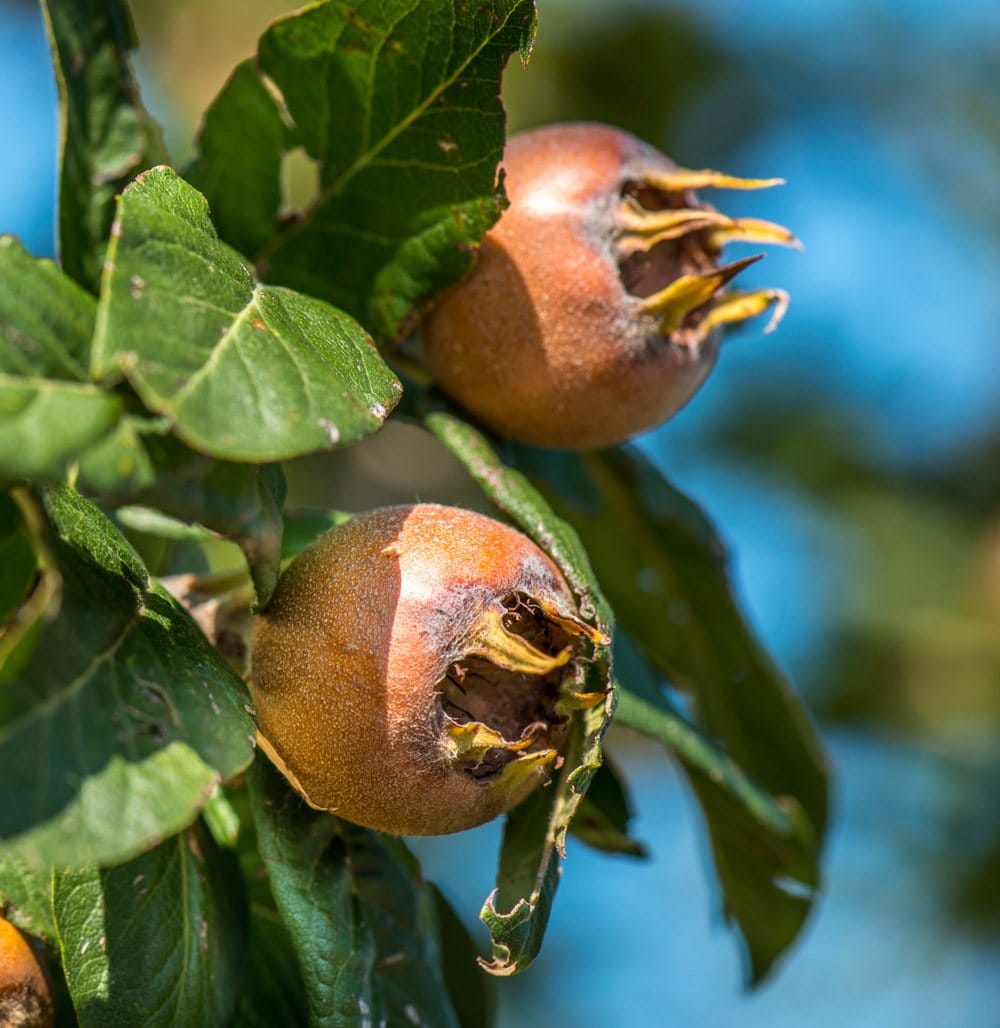The fruit of the Mespilus germanica, or emshen, looks like an undeveloped pomegranate, a large-fruited rosehip or a wild apple tree (arnap), it tastes tart, astringent like quince or unripe persimmon. But if you freeze it for several days, then it acquires a pleasant sweet taste of aromatic applesauce with sourness and quince aftertaste.
Medlar in the wild grew in several small bushes in the southwestern Kopetdag - the Gyuen gorge near the Chendir river in the Mahtumkuli etrap and was one of the very rare, according to the newspaper “Neutral Turkmenistan”.
Over the past 20 years, there have been several unsuccessful attempts to find her in these places. Scientists were forced to admit that the species fell out of the flora of Turkmenistan. In addition, due to poor knowledge, it was not included in any of the three issues of the national Red Book. The cultivation experiment in the Botanical Gardens was also unsuccessful.
In 2016, the medlar buds taken to the Botanical Garden were grafted onto a ready-made basis - rooted hawthorn and pear seedlings. As soon as the buds sprouted, the rest of the plants were cut off. As a result, in 2020, four young characteristic trees have already borne their first fruits.
Tanryberdy Tashliev, deputy head of the Forest Seed Production and Natural Parks Protection Service of the Ministry of Agriculture and Environmental Protection, who personally conducted this experiment, says:
“Medlar is photophilous, has great drought resistance, is undemanding to the soil, needs moderate watering, since the root system, although branchy, is located in the upper layer of the soil. The plant tolerates heat, drought and frost well, does not get sick, is not affected by pests.”
For landing, the scientists chose an open and sunny place called “Asma ýol”, which is located under the cable car. Now the trees are being monitored - by mid-April they have already “dressed” in fresh silvery foliage, covered with flowers.
Scientists hope to restore the natural population of this fruit breed.
In scientific medicine, the antibacterial properties of various parts of the plant have been revealed. Infusions of the leaves of the plant are good for gargling with colds. The fruits are rich in trace elements and vitamins.
The secreted phytoncides of medlar fruits can have a positive, tonic effect on well-being, “charge” with a positive mood, and normalize blood pressure. Thanks to this, the development of pathogens is inhibited, the heart rate and metabolism are normalized. It has a beneficial effect on the immune and nervous system. In addition, the fruits improve the functioning of the endocrine glands.
Also read:

